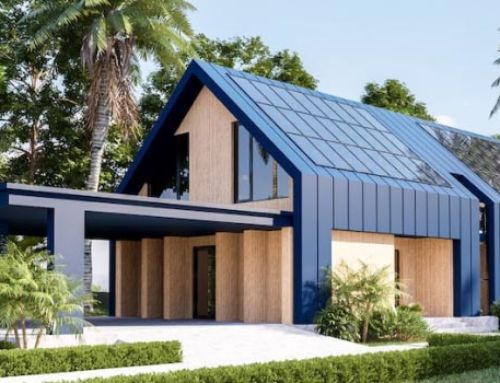While there has been a general trend for bigger houses over the past few decades, there is an interesting demographic, economic, and cultural shift occurring at the moment. This has led to the trend of downsizing your home, or moving into a smaller home.
Demographically, the baby boomer generation is largely responsible for this trend. Their teenage children are leaving home, so they no longer need the large family home that was once deemed necessary. Economically, tougher times have led to people wanting to lower their costs of living, and a smaller house is often the first step in doing this. And culturally, there is a growing trend towards simplicity in life, leading many people to adopt a more minimal existence, including a smaller and more manageable dwelling.
Whatever the initial reason for downsizing your home, there are some real benefits in doing so, and here is a summary of the main advantages:
Save money
The most obvious money saver here is that a smaller home generally costs less than a larger home. Still, there are other cost savings as a result, and some are more obvious than others. For example, utility bills for a smaller house are likely to be lower. When moving, other things such as transport costs could end up decreasing if you choose to downsize to an area closer to the city or work. Transport fares will be lower, and some might even be able to without a car altogether, saving big money on the car itself as well as all the related running costs.
More time
Time can be saved in a couple of ways. Firstly, if you downsize to a home closer to the city or work, your commute and travel time will dramatically decrease. Furthermore, the time required to constantly tidy and clean your home will also be less. You will no longer have to worry about multiple rooms to clean, let alone multiple levels.
Less maintenance
Similar to the above, general maintenance would be much easier in a smaller property. You’ll most likely have a smaller garden (if you have one at all), and this will save on maintenance tasks from both a time and money perspective.
Less clutter
The growing trend towards mindfulness and simplicity is backed by psychological evidence, as studies show that those who remove clutter from their surroundings are happier. In a large house, we all tend to collect and hoard things that we don’t need. However in downsizing your home, we are forced to only keep things that are truly necessary. The result of having less clutter is more mental space for the things that really matter in life.
More socialising
This might sound strange, but if you downsize to an urban area you’ll feel less isolated. Your options of places to go out will multiply, and you’ll really be able to feel like you’re living amongst society. Furthermore, if you’re downsizing your home as a family, you’re more likely to cross paths with family members as common areas will be used more often, encouraging interaction and more time with those you love.
Eco friendly
You can also do your bit for the environment by downsizing your home. The smaller your home, the smaller your footprint and energy consumption. Over time, this will continue to be a trend as sustainable cities will rely on accommodation to be creatively smaller.
No room for guests
This may seem a little underhanded considering the feel good attributes discussed above, but hosting guests and parties can often cause considerable stress, not to mention adding to your costs. A smaller house means you won’t have room to invite people over, and nobody will hold this against you.
Summary of downsizing your home
Many of these reasons for downsizing cross over, but the key theme is that there is significant awareness and happiness to be gained in moving yourself, your family, and your life to a smaller dwelling. Downsizing your home requires a large mental shift as well as a physical one, and growing accustomed to a smaller and simpler life can take some time. As with anything in life however, the uncomfortable decisions can often result in the greatest rewards.










![How Much Does Home Design Cost in Canberra [Industry Pricing Revealed]](https://www.canberrahomebuilders.com.au/wp-content/uploads/2022/05/How-Much-Does-Home-Design-Cost-in-Canberra-500x383.png)